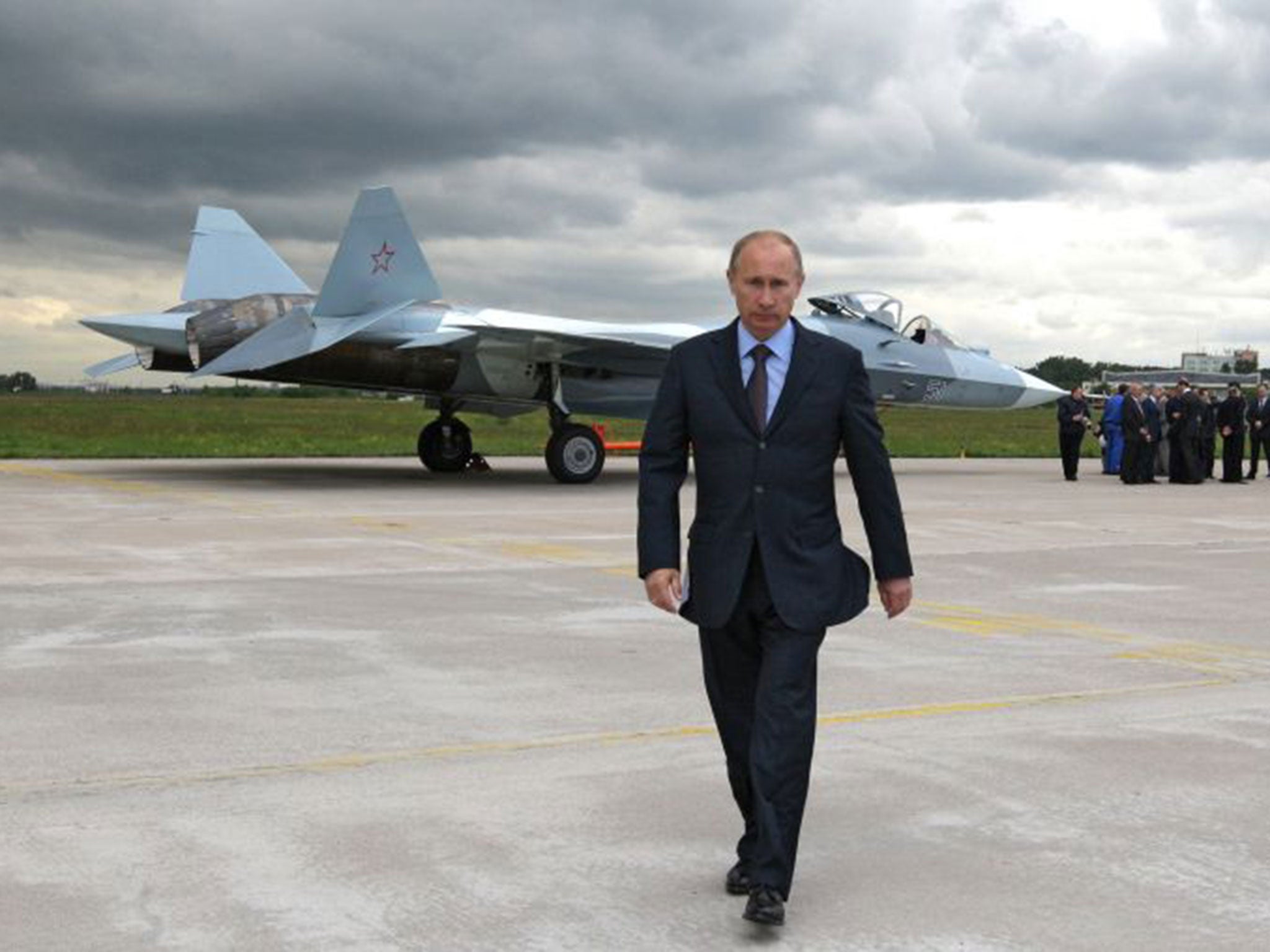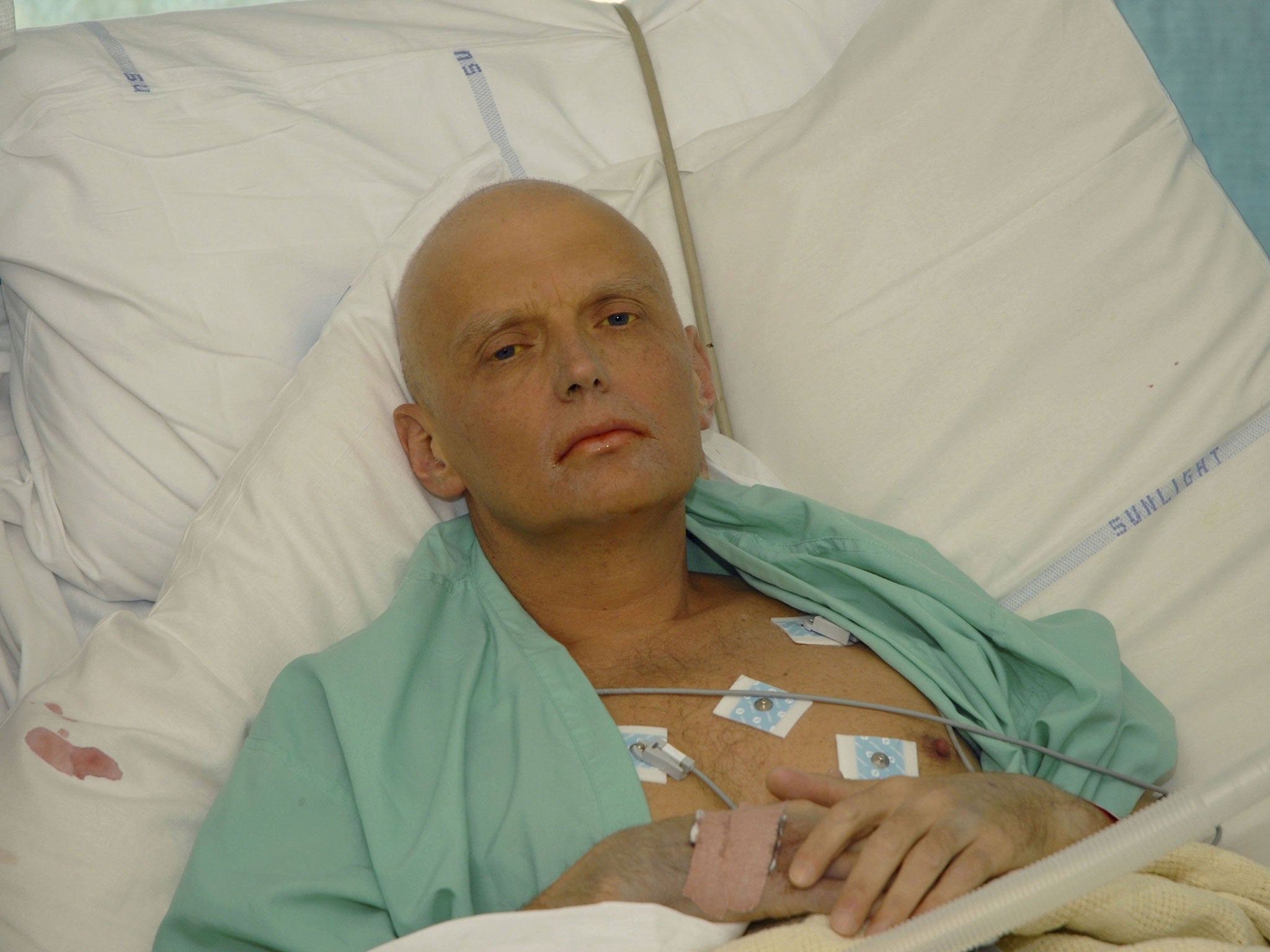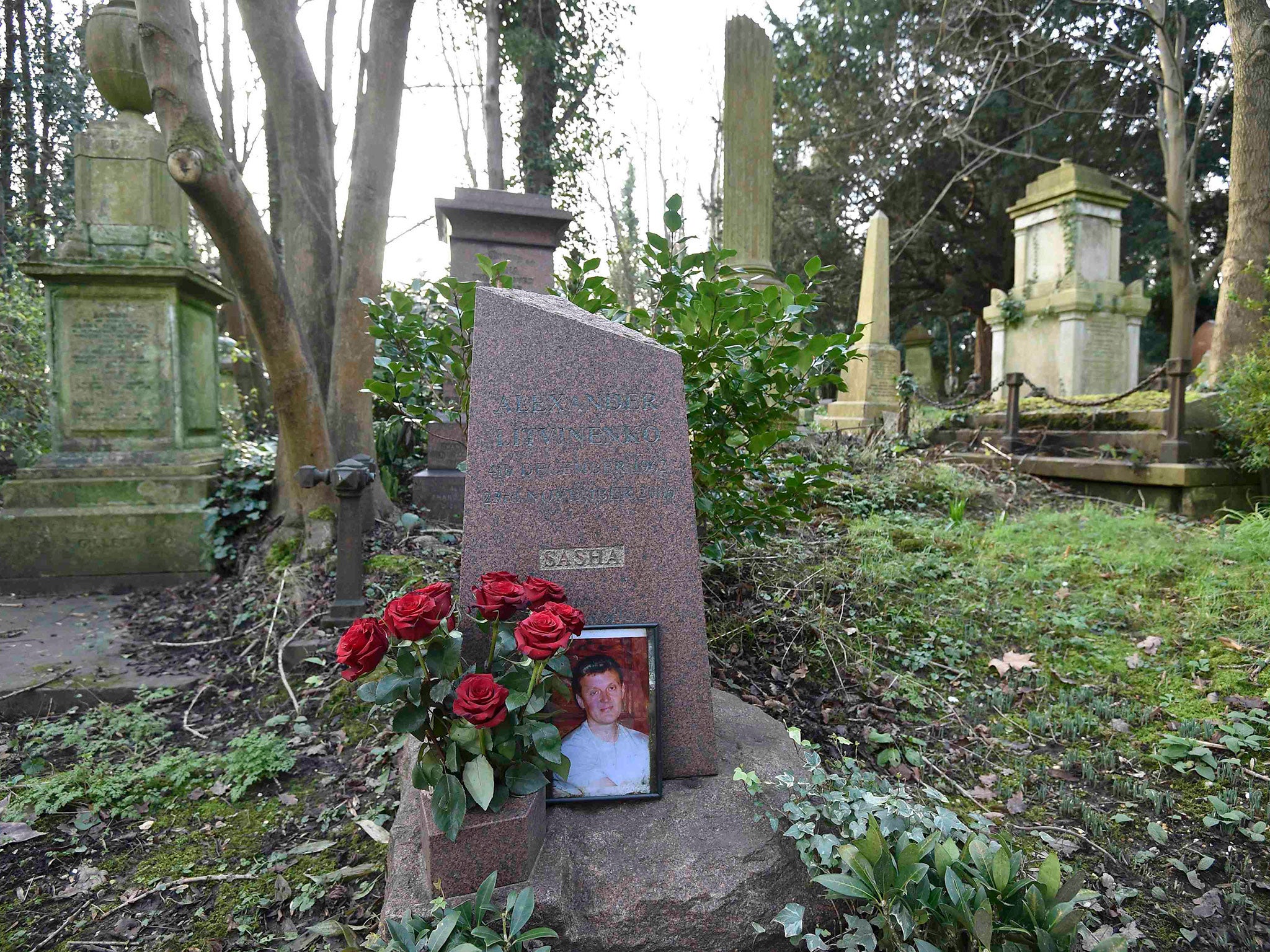Litvinenko inquiry: When it’s Putin, different rules apply
Unless events take an unexpected turn, the Russian president is unlikely to be held to account for the murder of Alexander Litvinenko

Your support helps us to tell the story
From reproductive rights to climate change to Big Tech, The Independent is on the ground when the story is developing. Whether it's investigating the financials of Elon Musk's pro-Trump PAC or producing our latest documentary, 'The A Word', which shines a light on the American women fighting for reproductive rights, we know how important it is to parse out the facts from the messaging.
At such a critical moment in US history, we need reporters on the ground. Your donation allows us to keep sending journalists to speak to both sides of the story.
The Independent is trusted by Americans across the entire political spectrum. And unlike many other quality news outlets, we choose not to lock Americans out of our reporting and analysis with paywalls. We believe quality journalism should be available to everyone, paid for by those who can afford it.
Your support makes all the difference.In August 1940, Leon Trotsky was attacked at his heavily guarded home in Mexico City. His assailant, a Spanish communist called Ramon Mercader, gained access to the compound by pretending to be a sympathiser, but he was actually working for the Russian secret police, the NKVD. Once inside Trotsky’s study, where the exiled revolutionary was writing a biography of Stalin, Mercader pulled out an ice axe and struck him on the head.
Still conscious, Trotsky was rushed to hospital, where he died the next day. Although Mercader struck the fatal blow, Trotsky was in no doubt about the true identity of his assassin: three months earlier, after an armed assault on his compound, he had written an article entitled “Stalin seeks my death”. Mercader served a long prison sentence in Mexico, but Stalin showed his gratitude by presenting his mother with the Order of Lenin.
Plus ça change, plus c’est la même chose. Last week, in one of the most extraordinary reports ever to emerge from a British public inquiry, it was claimed that the former Russian spy Alexander Litvinenko was probably murdered on the personal order of Russia’s head of state, President Vladimir Putin. As politicians reeled from the findings of Sir Robert Owen’s inquiry, David Cameron described the killing in the centre of London in 2006 as “state-sponsored murder”.

That was the accusation made by Litvinenko himself, in a statement published posthumously by one of his friends. The circumstances of his murder in are well known by now: the cup of tea with two former KGB officers, Andrei Lugovoi and Dmitry Kovtun, from whom he hoped to get private security work; the stomach cramps that got worse over the next few days; the shocking diagnosis of poisoning with polonium-210; the fact that his body was so radioactive that he had to be buried in a lead-lined coffin. What wasn’t expected, or not in such bald terms, was the inquiry’s conclusion that there was a “strong circumstantial case” that the Russian state was behind the assassination.
In a chilling parallel with Stalin’s behaviour towards Trotsky’s assassin, the inquiry highlighted Putin’s favourable treatment of Lugovoi in the years after the murder, suggesting it demonstrated the Russian state’s approval of the killing. Sir Robert’s exceptionally damning report claimed that the murder involved a conspiracy at the highest level, planned from as early as 2004. It said that the operation was probably approved by Nikolai Patrushev, then director of the FSB, which took over from the KGB in the 1990s.
The prospect of terrorists getting their hands on nuclear material and using it to kill civilians has worried the security services for years, with supporters of al-Qaeda or Islamic State (IS) regarded as the most likely culprits. But the person accused of ordering the first assassination using radioactive material is a serving head of state; Russia is suspended from G8 meetings after Putin’s annexation of Crimea but Cameron, Angela Merkel, François Hollande and other world leaders meet him regularly at G20 summits. Can they really turn up for the 2018 World Cup in Moscow and exchange chit-chat with Putin about the prospects for their national teams, as though nothing has happened?
In the sober surroundings of the High Court in London, Russia’s head of state has been linked not only to the Litvinenko murder but to a pattern of state-sponsored assassinations: “Leading opponents of President Putin, including those living outside Russia, were at risk of assassination,” the report stated. The list of Kremlin critics who have met grisly ends is lengthy, even if only the most famous make international headlines: the journalist Anna Politkovskaya, who was gunned down at her apartment building in Moscow on Putin’s birthday in 2006; the lawyer Sergei Magnitsky, who died in a Moscow prison in 2009 after being badly beaten; and the politician Boris Nemtsov, who was assassinated on a bridge near Red Square last year.

What is different now is that the accusation comes from an unimpeachable source, after a year-long public inquiry that had access to secret intelligence. Following publication of the report, European arrest warrants were issued for Lugovoi and Kovtun, but Putin would undoubtedly claim immunity from prosecution as head of state. Unless events take an unexpected turn, he is unlikely to be held to account at home and Russia is not a member of the International Criminal Court. But the travel bans and asset freezes announced last week by the Home Secretary, Theresa May, are hardly commensurate with the gravity of the accusations against the President’s inner circle.
At the very least we need a British version of the Magnitsky Act, which was passed in the US in 2012 to punish Russian officials complicit in the lawyer’s murder. But something else is missing. When Islamists attacked Paris twice last year, world leaders showed a united front against international terrorism. The silence of the Leader of the Opposition, Jeremy Corbyn, was striking last week, but where were Hollande, Merkel and other European leaders? Putin can stick two fingers up at a single government but EU-wide restrictions on all current and former FSB officers would be another matter.
Sadly, the French President chose Thursday, the day the Litvinenko inquiry published its report, to announce that he wanted closer cooperation with Russia in the fight against IS. The jihadists have seized headlines with sickening attacks on civilians in European cities and the Middle East. But they do not possess the apparatus of a state, including access to radioactive material from closed nuclear facilities. Putin does, and a head of state who stands accused of ordering political assassinations is as great a threat to international peace and security.
Join our commenting forum
Join thought-provoking conversations, follow other Independent readers and see their replies
Comments